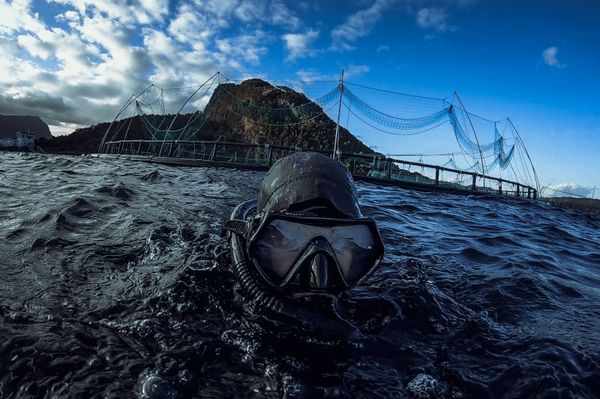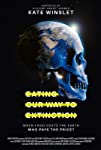Eye For Film >> Movies >> Eating Our Way To Extinction (2021) Film Review
Eating Our Way To Extinction
Reviewed by: Jane Fae

Eating Our Way To Extinction begins badly. By which, I mean, it starts well, for a film of this genre, with footage of a very bad man. A farmer, or maybe a politician, or a farm security guard - who knows? You pays your money and you takes your choice - is on camera explaining his worldview: “The whole world thinks they can tell Brazil what to do with her land. We do what we please.”
Tick!

Villain identified.
Anger engaged.
Let the smug-in begin.
Am I being unfair? Absolutely. The film documents, in meticulous detail, the threat to our planet, our very survival, from our eating habits. Long story short: eating meat is bad for us. Very bad indeed.
Most obviously, meat-eating means we need to make space for meat, aka livestock, aka pigs, cattle and sheep. These take up room, which is obtained by farmers in the poorer parts of the world chopping down precious ancient woodland. Here an Amazon rainforest, there a historic jungle. Where? Well, it was definitely here a moment ago.
So, eating meat contributes to deforestation. But worse, so much worse. Because all the pretty moo-cows and piggies are constantly belching and farting out noxious gases like methane and nitrous oxide, which are orders of magnitude more effective climate changers than CO2, they are doing more environmental damage than actual human industry.
Yep. Our eyes, for so long, have been on the damage done by cars and planes and factories, we’ve quite missed the far greater damage inflicted by our insatiable desire for the Big Mac and bacon sarnies.
So, eat chicken! Eat fish! Nope! Fish, it would appear, are disease-ridden, lice-infested monsters. While chickens (and other livestock) consume so large a part of our antibiotic stock that the post-antibiotic era is now all too visibly on the horizon.
OK. If all of the above makes me sound sceptic, my apologies. I do get it. And on the back of this film will likely be doing my best to make even further changes to my lifestyle than I have already. My issue here, I guess, is more to do with the bigger question, which is: what is the point?
Eating Our Way To Extinction is well-made, switching effortlessly from horrific shots of environmental destruction to indigenous people being very sad about humanity out of synch with nature, to stupid, venal, possibly corrupt politicians and business people arguing why maybe we need to change. Just, not yet!
All of the above is neatly held together and linked up by narrator and executive producer Kate Winslet, variously aided and abetted by philanthropist Tony Robbins, Virgin Group founder Richard Branson, plant-based physician Dr Michael Greger, and a host of other almost famous talking heads. The film is directed by brothers Otto and Ludovic Brockway, and counts among its official partners Ecosia, Plant Based News, and Veganuary.
If you are already tuned into the issues, you will likely nod along in agreement with almost every sentence uttered in the polished Winslet tones. There are some interviews, some facts that really do cause a swift inrush of breath. This film is also a useful antidote to the constant banging on about planes and the like.
And yet, and yet...does it cut through? Will anyone not listening already do other than turn over at the first sign of awkward views? We’ve been doing this sort of film seemingly forever. Or at least since 2006 and Al Gore’s much heralded An Inconvenient Truth and...we are still arguing the detail at COP26 while doing nothing to address the bigger picture.
Perhaps there is nothing to be done. Perhaps human doom is pretty much a design feature of humanity. That would be sad: though seeing the damage we are doing to this planet, perhaps not unjustified.
Reviewed on: 12 Nov 2021
















